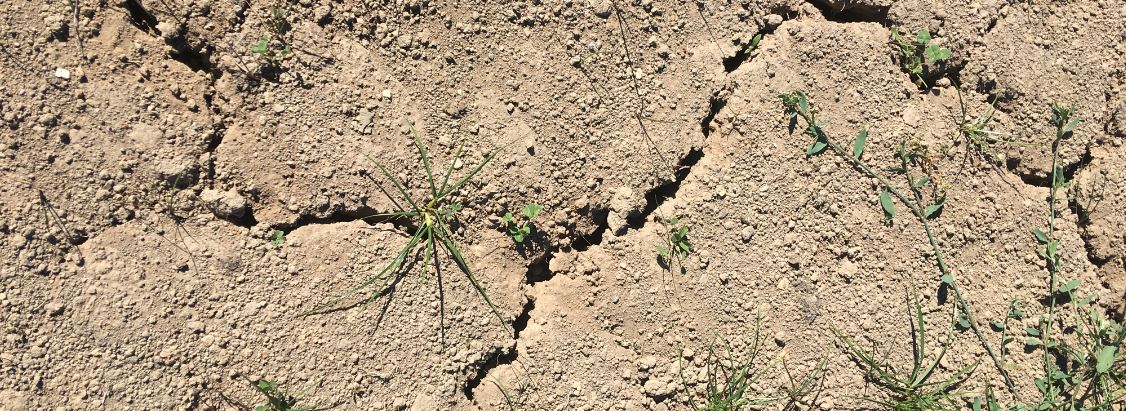What Goes Around…
I’ve spent a couple of days this week on a course learning more about Life Cycle Assessments (LCAs). I’ve talked about them before, specifically in the context of the environmental impact of wrapped and unwrapped cucumbers (see ‘It Really Is Rocket Science’), but this was a more general investigation of the strengths and weaknesses of the technique. Organised by FoodWasteNet and delivered primarily by academics from University College London, the course was attended by industrialists and researchers. Availability of credible data is sometimes a challenge, in large part because the necessary measurements are complex (and inevitably expensive) and there is huge variation in resource consumption even within a sector. The current extreme weather conditions for instance will, clearly, result in levels of water consumption well above the norm and is having significant impacts across the agri-food system and beyond. The picture below shows a parched field in the usually lush Peak District national park.

Another challenge is in making assumptions around what might or might not happen when people become a part of the system. By way of illustration, a report released this week by the UK’s National Audit Office (NAO) highlighted that over half of the packaging reported within UK data collection systems as recycled is being sent abroad to be processed. And this is after the Chinese government’s decision to halt imports of UK plastic waste from the start of this year. As a result, it says, consumers who are diligently doing the right thing in their homes and beyond can’t know whether the recyclables are getting turned into new products, buried in landfill or burned. Reflecting this accurately in LCA calculations is all but impossible. The general value of LCAs is in identifying broad-brush pictures. Too much granularity may well result in mis-directed outcomes.

The United Nations Sustainable Development Goals (SDGs) represent a global strategy for achieving economic growth that is consistent with the planet’s capacity, society’s basic needs and the capabilities and stability of the economy. Regular readers will have encountered them in many previous posts (‘Supply Chain Reaction’, ‘Bees, Leas and SDGs’ and ‘Owned Goals’ to name a few). This week saw a meeting organised by the ONS Economic Forum exploring inclusive growth, inequality and the value of urban green-space in the context of the SDGs. This is not a perspective which I have covered before, but it reflects some of the features of the UK public’s priorities which I talked about in ‘Supply Chain Reaction’. The SDGs are best thought of as an inter-connected system rather than 17 discrete areas of endeavour and each of them in turn covers a range of considerations. SDG3 (Good Health and Well-being), SDG8 (Decent Work and Economic Growth), SDG10 (Reduced Inequalities) and SDG15 (Life on Land) were all evoked in the event title, but all of those concepts could be reasonably viewed in this context as aspects of SDG11 – Sustainable Cities and Communities.

Linking the events was the theme of data and metrics. The (now rather trite) and contested old saying that ‘you can’t manage what you can’t measure’ – attributed to Peter Drucker – captures a basic truth. Decisions have to be based on something. This doesn’t necessarily translate into a need for formal metrics, but it does speak to the need for understanding the context of observations. LCAs are often compiled within boundaries which are defined as much by available data as by a meaningful description of the bounds of a system. Back in my high school days our maths teacher summed this up rather neatly; you need to know 90% of the answer to a question even before it is asked. This is all about understanding boundaries and is as true now as it was then.